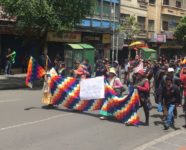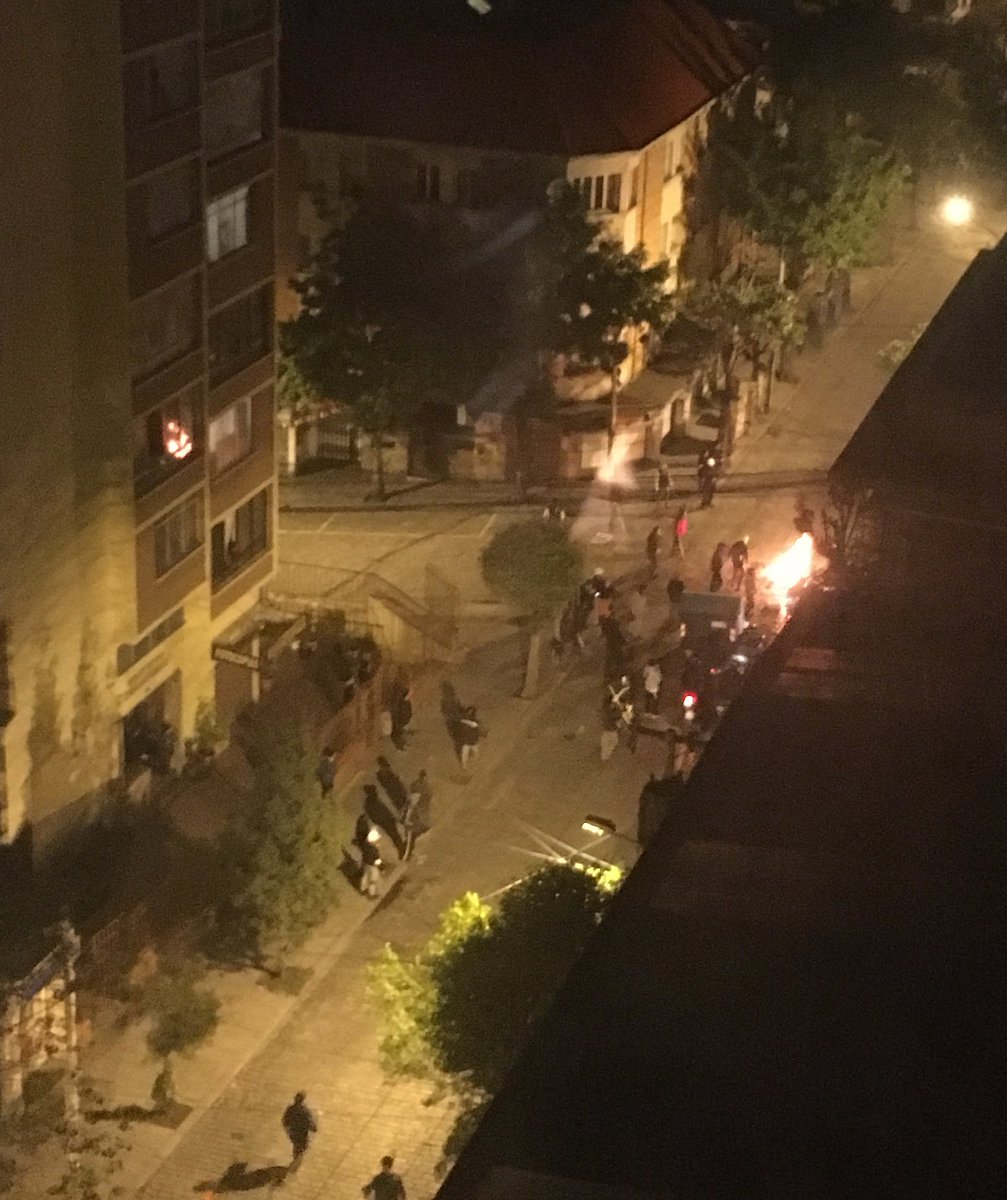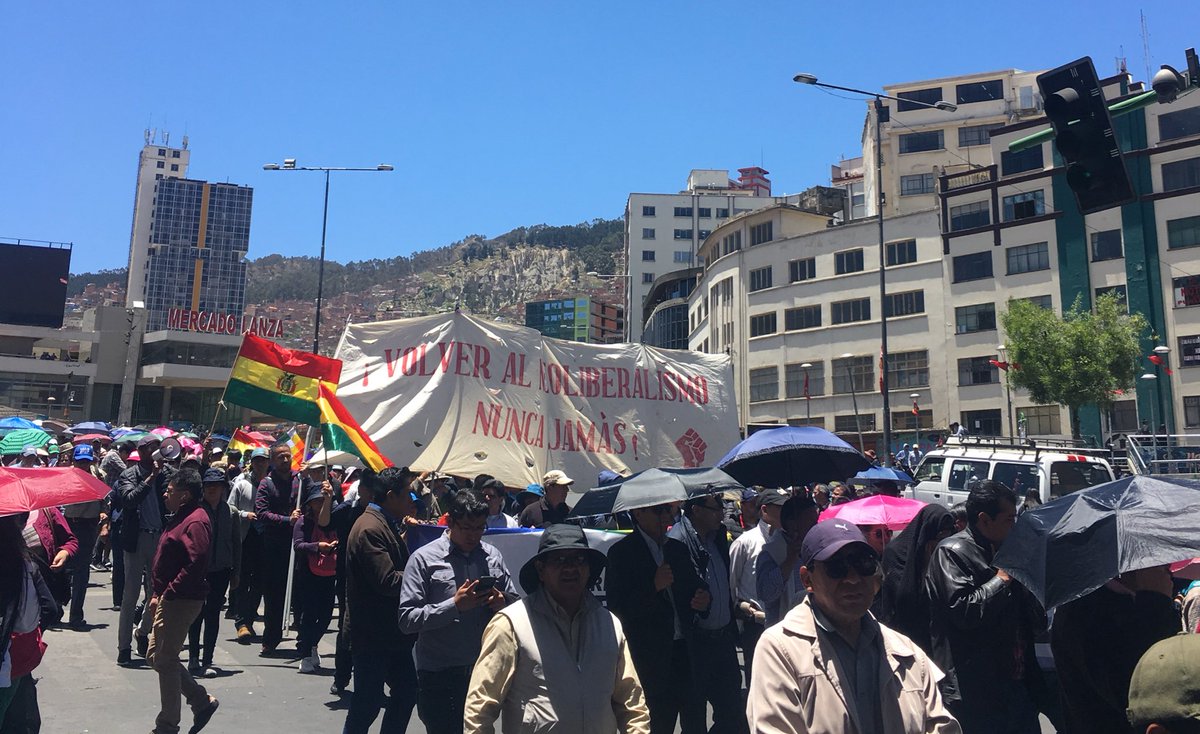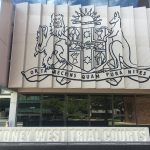US Backs Ousting of Democratically-Elected Bolivian President

Until recently, Evo Morales was the president of the Indigenous majority country Bolivia. The Aymara man and former coca farmer was renowned for having redistributed the wealth of his nation to poorer sectors of society, as well as removing dependence on Bretton Woods institutions.
The first Indigenous president of Bolivia since the Spanish invaded the Andean nation in the 16th century, Morales had held the presidential office since 2006. And his Movement for Socialism party was victorious in recent October national elections, taking out 47 percent of the vote.
But, vote rigging rumours began circulating. And in conducting an audit of the vote, the Organisation of the American States (OAS) claimed “irregularities”, but produced no evidence of them. And a thorough paper from the Centre for Economic and Policy Research found no issues with the electoral process.
“Pachamama will never return. Today Christ is returning to government.”
Right-wing protesters took to the streets en masse calling fraud on the election. Then on 10 November, it was announced Morales resigned, which was parroted by media around the globe, yet no one mentioned that armed military personnel were standing close by demanding his resignation.
Before an almost-empty chamber, Bible-waving conservative senator Jeanine Añez Chávez declared herself interim president of the South American nation on 12 November. Ms Chávez is notorious for having said Indigenous people should stay out of cities, and referring to their beliefs as satanic.
For Indigenous peoples, this is a cruel return to the old days, as the descendants of the invaders regain their lost control. And many peasants who have only had the ability to live above the poverty line of late, have taken to the streets in protest, however some have paid with their lives.
Pretext for an overthrow
“No credible evidence of fraud has been presented. Morales himself asked the OAS to audit the vote and said he would abide by its findings,” explained Federico Fuentes, an Argentinian-born Latin America solidarity activist. “Yet, so far, the OAS has only released an interim report.”
According to Fuentes, the interim report was critical of how the electronic count operated, but regarding the actual count, it asserted some irregularities existed, but provided no evidence as to how, or if, it affected the final outcome.
The Socialist Alliance member further pointed out that a full recount is no longer possible as right-wing protesters torched the electoral commission offices. Yet, despite all this, Morales said he was willing to hold new elections.
And as for his supposed resignation, Fuentes is clear it was nothing of the sort. “When the head of the military tells you it’s time to leave, it’s because a coup is taking place,” he makes clear. “Any lingering doubt should have dissipated with the brutal violence we’ve seen in the days following.”
No strangers to effective action
Thirty civilians have been killed in unrest following the US-backed coup, with hundreds injured or detained, Fuentes relates. And the newly installed reactionary forces have threatened to ban the Movement for Socialism (MAS), as well as detain its leaders, along with journalists as well.
One of the flashpoints of the crackdown on Indigenous protesters is around Cochabamba: a city situated in a valley in the Andes mountain range. A group of Indigenous coca farmers were attempting to march from the small town of Sacaba to rally in the city in support of Morales.
For their trouble, they were met with military and police, who did not hesitate to greet the peaceful demonstrators with an onslaught of teargas and bullets. Five rural people were shot dead, as they attempted to call for the return of a government that actually considered their rights and needs.
The Indigenous people of the Cochabamba region are no strangers to taking action against neoliberal encroachments. Back in 1997, the World Bank promised aid, if the Bolivian government privatised its water, by handing the rights over to US company Bechtel.
The deal went through in 1999. And within weeks, Bechtel hiked the price of water by more than 50 percent. Armed with only rocks, the Indigenous campesinos chased the multinational out of town the following year, with its tail between its legs. It became known as the Cochabamba Water Revolt.
Kicking against the pricks
Fuentes stresses the transformation of Bolivia under Morales. He ought to know, as he ventured to the country as a journalist to cover the Morales 2005 presidential campaign. And he later co-authored the book, MAS-IPSP: A Political Instrument That Emerged From the Social Movements.
There were many changes, he said, “starting with the recuperation of state control over the country’s gas reserves and the enactment of a new constitution drafted by an elected constituent assembly that enshrined numerous rights”: not just for the Indigenous, but also the planet.
And as Morales brought in unprecedented economic growth and poverty reduction, at the same time, the maverick politician declared total independence from the World Bank and the IMF: the money lending global institutions that impose economic debilitating conditions in return.
However, as Fuentes points out, what made the Morales government so significant was it was the first time the majority Indigenous population had “held governmental power” in over 500 years. And for all this reform, “the traditional political elites never forgave” Evo.
A “dark and dangerous precedent”
Early last week, Morales fled to Mexico, where the government has given him asylum. The former president explained that he had to leave his own country because his life was being threatened, with a bounty having been placed on his head.
As far as Fuentes is concerned, Bolivia’s fate remains undecided. While it’s unlikely that Evo Morales will be returning to power, his political party is still active and holds a great deal of sway. And that’s why right-wing forces are attempting to annihilate it and imprison its leaders.
Although, Federico also sees implications to the ousting of Morales, which are beyond the immediate concerns of his country.
“Those fighting for action on the climate crisis or for Indigenous rights have lost an important spokesperson and ally,” he concluded, “as Morales constantly used international arenas, like UN summits, to speak out in support of these causes.”









